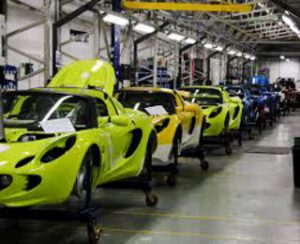The world resources shift from one place to another. And we are not just talking about natural resources of a specific land or territory but any type of resources that we now use. Industries all over the world can relate to how the rise and fall of the global market affected their businesses. The sun is not always shining and when it does not, it can mean a certain doom to someone. Despite the rapid rise in the world’s population, there are markets that crash because the supply and demand have shifted or that someone else has taken over their target market.
 It is the plausible explanation why the Australian auto manufacturing industry just bid everyone goodbye. For a long time, Australians had been making their own cars but sadly, it has come to an end and countless employees suddenly found themselves without a job to bring in the bacon. Even foreign car brands have been shutting down production over recent years and the people are partly blaming the government for the death of the car manufacturing industry down under. The factors highlighted were high production costs, the high Australian dollar, and the continuously diminishing local market all contributed to this problem. The particular car brand, Holden, is synonymous to Australia. But foreign car makers are unbeatable and the Aussie domestic makers are nowhere near their scale.
It is the plausible explanation why the Australian auto manufacturing industry just bid everyone goodbye. For a long time, Australians had been making their own cars but sadly, it has come to an end and countless employees suddenly found themselves without a job to bring in the bacon. Even foreign car brands have been shutting down production over recent years and the people are partly blaming the government for the death of the car manufacturing industry down under. The factors highlighted were high production costs, the high Australian dollar, and the continuously diminishing local market all contributed to this problem. The particular car brand, Holden, is synonymous to Australia. But foreign car makers are unbeatable and the Aussie domestic makers are nowhere near their scale.
There has been a car industry in Australia for almost as long as there have been cars. Friday’s closure in Elizabeth, a suburb of Adelaide, left many questioning why the government did not step in and save the country’s once-vibrant auto industry, when auto manufacturers in the United States and elsewhere received big bailouts to stay afloat.
Auto plants in Australia have slowly been closing over the last several decades, with Ford, Toyota and now Holden, a General Motors subsidiary, shutting their manufacturing operations over roughly the last year.
Some blame the industry’s demise on the government’s refusal in 2013 to come to the rescue of the country’s automakers as they were battered by a high Australian dollar, high production costs and a shrinking domestic market.
Union officials estimated about 30,000 people lost their jobs as a result of the recent closures. In the area north of Adelaide, which has at times had South Australia’s highest unemployment rate and where Holden was the largest employer, nearly 1,000 people were left looking for work as a result of the automakers decision to cease production.
(Via: https://www.nytimes.com/2017/10/20/world/australia/holden-automaker-factory-closes.html)
When one door closes, a window opens. Aussies can hold on to that saying even if many of those who were laid off are saying that they are having a hard time looking for a new one while it seems next to impossible for the older workers to even snatch a job at all. It is one dim reality they have to face because their industry failed to meet global standards. Those who took their Holden cars on the streets to show off understand pretty well that this is an end to an era of Australian car-making and they probably won’t be able to revive this industry anymore anytime soon.
The closures mark the end of home-grown icons such as the Holden Commodore and the Ford Falcon driven by Mel Gibson in the original “Mad Max” movie. But they also strike an economic blow, especially in the rust belt state of South Australia, where recent signs of recovery haven’t been enough to stop people leaving in droves.
"It is clear that the automobile industry is a very significant industry that once it is gone, will leave a very deep economic gap, an investment gap and an employment gap,” said John Spoehr, a professor of economics and director of the Australian Industrial Transformation Institute at Flinders University in Adelaide. “Holden injects a billion dollars plus into the South Australia economy. So its loss is going to be very significant.”
The parade is the last thing Holden car owners can do to commemorate the contribution of this car brand to the Australian economy and identity. Vintage may be out for many but it is for these proud owners who appreciate the contribution of Holden not only to the county but to their lives. Now, the people are hoping that the government will intervene and help everyone affected move on from this experience especially the ones who lost their jobs because of the closure. And we are not just talking about the ones working in the plants but even those of companies providing products and services to this plant for years. There’s this domino-effect that will have more implications for the country’s economy if the state won’t be able to clean up their mess this time.
Australia Won’t Be Making Cars Anymore was initially published to The IANAA Blog
source https://www.iamnotanartist.org/australia-wont-be-making-cars-anymore/

No comments:
Post a Comment